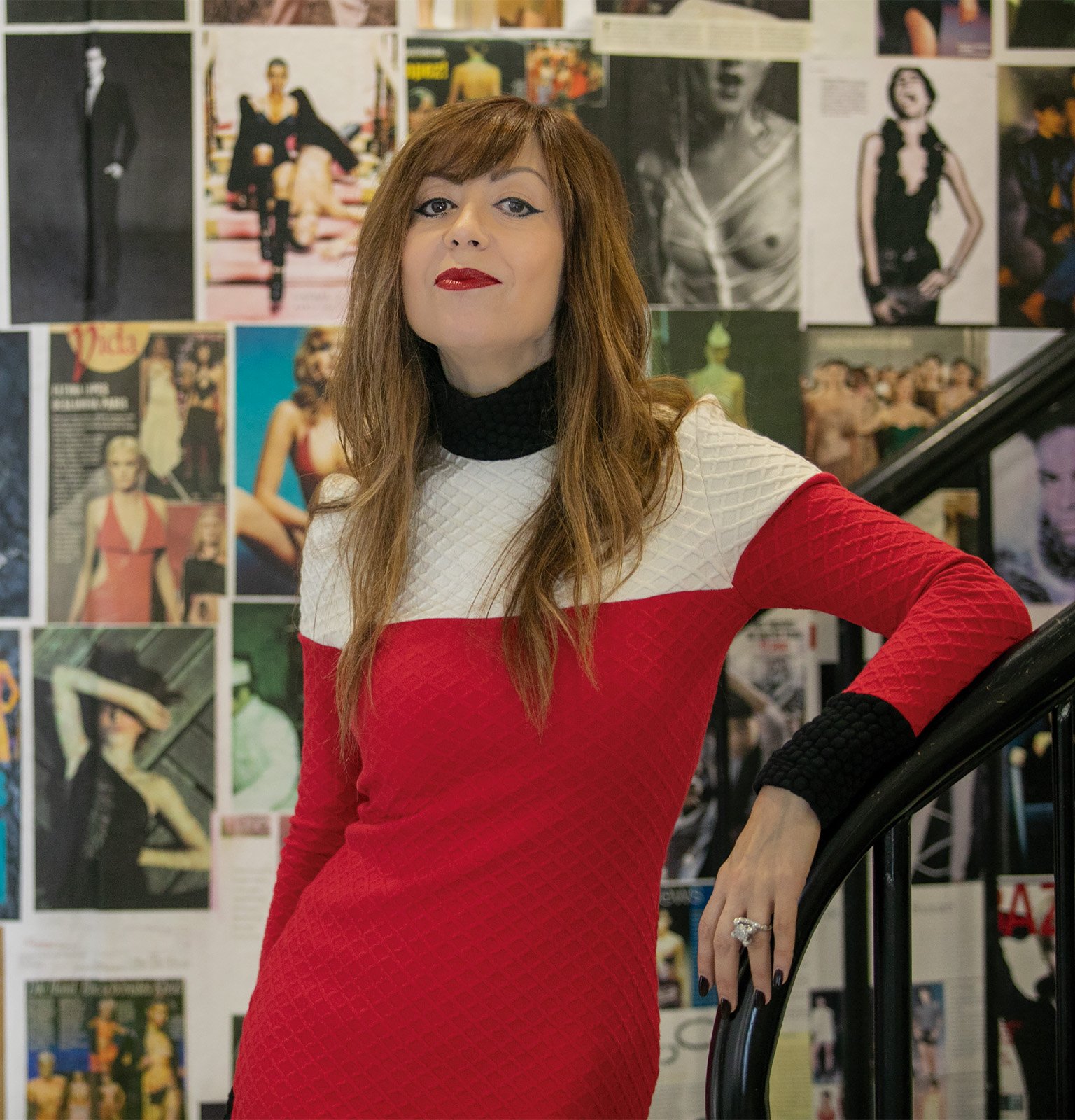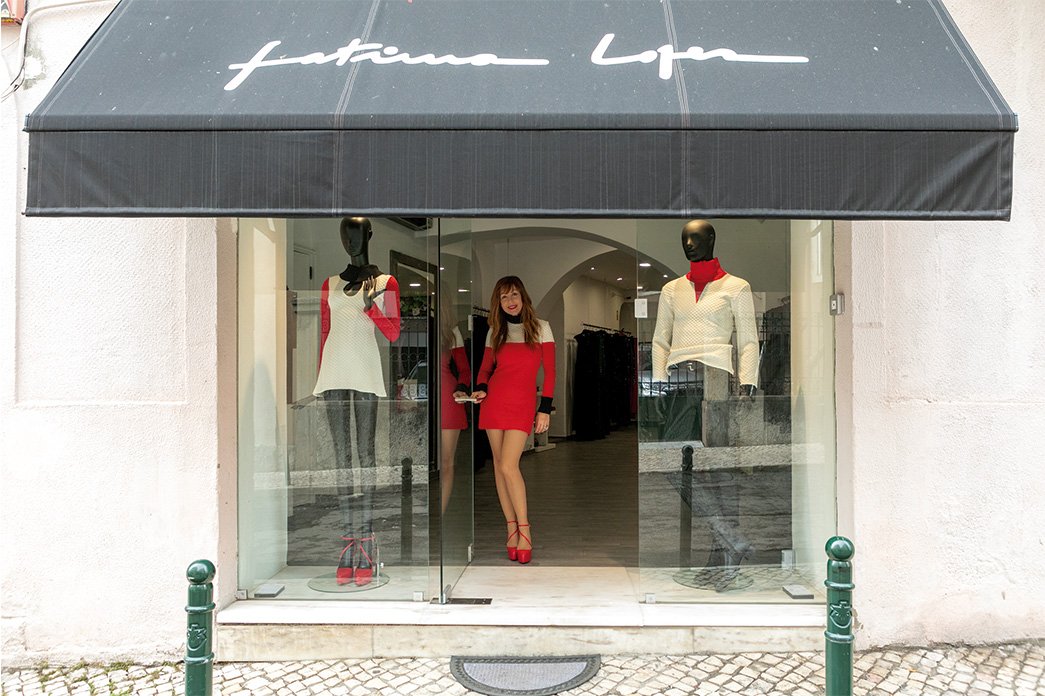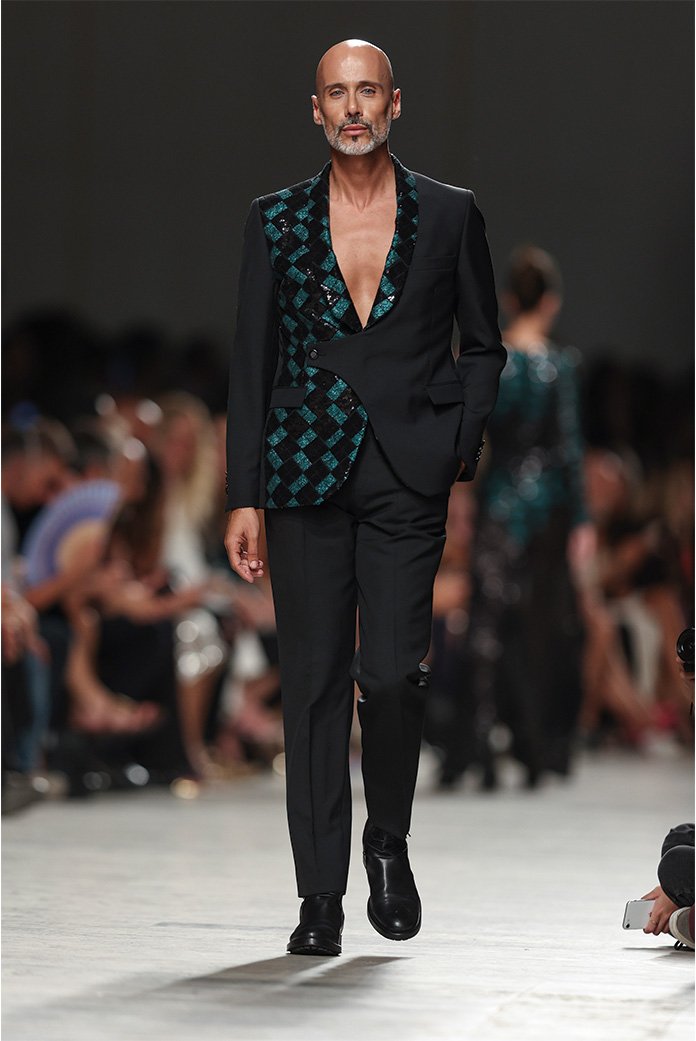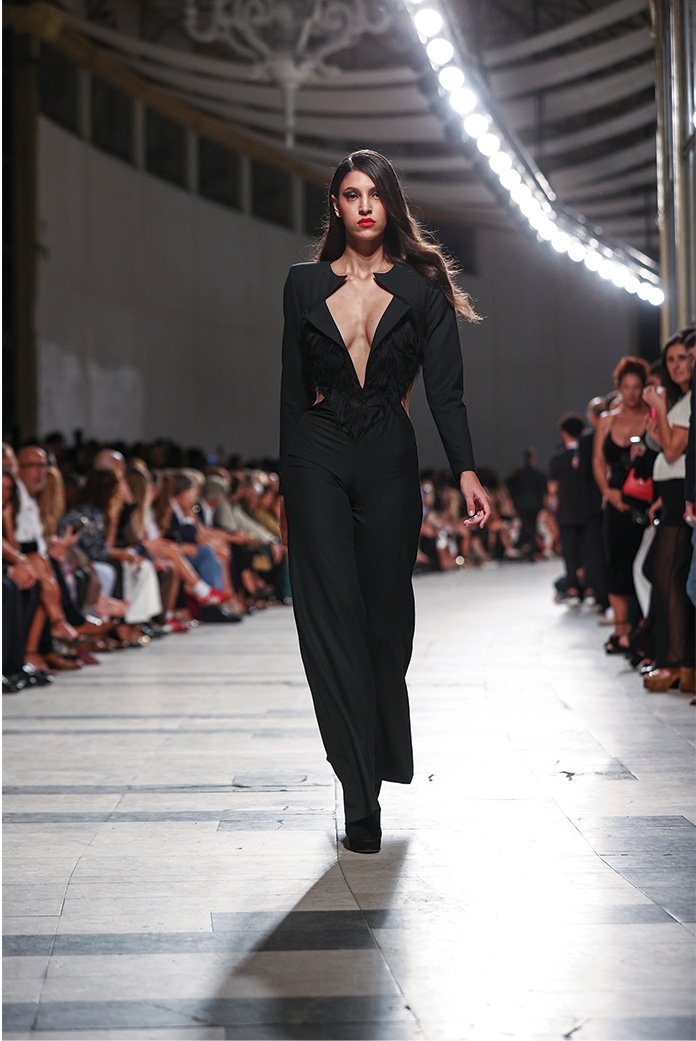«30 years ago, Fátima Lopes was loved and hated (...) I went from stupid to stupendous»
Have you always been a different, unconventional person?
As a child, I had no notion that there was a thirst for difference. Portugal was old-fashioned, but Funchal was even more so. I think young people had a crazy desire to do different things, to go in search of everything that hadn’t been done. This desire to do things differently gave rise to a whole generation of designers in various areas, perhaps because they never had access to anything and suddenly wanted to do a lot. I am one such person. When anything was at all difficult, I tried to transform it into enticing and different projects. That’s what defined my brand from the beginning. It is not a copy of anyone. People have said on many occasions that Fátima Lopes is not a trend. Of course it isn’t a trend. It’s unique. In fact, that’s what made Paris open the doors to my brand. Difference is the definition of being creative and therefore no one can ever accuse me of copying anyone else, because I have always been loyal to myself, whether they like it or not.
You travelled the world from an early age, as you started out as a tour guide. Was it those travels that spurred you to think bigger?
Travel showed me the world and that I was capable of doing anything I wanted to. At 19, I realised that my life could be anywhere, regardless of my profession. The world was so big..., I didn’t need to be shut up on an island. So, being a tour guide turned out to be a school of life, not least because my job consisted of organising trips. I was a girl in charge of groups of 50 people who sometimes went to places I didn’t know and had to pretend I knew them, at a time when there was no Internet. This is what gave me a healthy madness, the irreverence of not being afraid. I thought that if I was capable of doing it, I would also be able to follow my dream.
At 23, you arrived in Lisbon and took your first steps in the world of fashion. Did Portugal open its arms to your talent from the outset? Did they understand you right away?
That’s a funny story. Thirty years ago, Fátima Lopes was loved and hated at the same time. I was understood by a niche of people like me, irreverent young people who wanted lively fashion. Accordingly, there were people who didn’t understand me at all. At the time, people couldn’t agree on me. Interestingly, it was never a problem for me, in fact, it made me want to go that extra mile. If the criticism was constructive, I could take it on board, but most of it made me laugh. If the intention was to tear me down, it didn’t work as planned.
Did it take recognition abroad for the Portuguese to look at you differently?
Yes. When I started in fashion, I wasn’t a copy of anyone. The little fashion press that there was, and little understood, said that I wasn’t on trend. When I arrived in Paris, I was the first Portuguese fashion designer to enter Paris Fashion Week. The international fashion press opened their doors to me and then the «prophets of doom» no longer said that my work was bad, because they would have been taken for ignorant. So, it was an about-face, I went from being stupid to being stupendous. From 1999 onwards, it did no good to talk badly about Fátima Lopes, as I already had an international brand.
What did the world see in your work that Portugal didn’t recognise?
We are only talking about professionals and amateurs. Fashion Week in Paris is an event for fashion professionals. Whoever goes there can understand who is or isn’t a designer. In Paris, copies are not admitted, because the person making them isn’t a designer, he or she is a couturier. So, professionalism opened doors for me. In Portugal, they were used to copying magazines that came from abroad and, in fact, it was a big difference to stop being judged by an amateur press in favour of a professional press.
Did you hear many «noes» along the way?
Yes. Nothing was easy and the biggest obstacle was the industry. I’ve had a career for 30 years and I keep repeating the same thing since the beginning: the fashion industry in Portugal has never known how to understand designers. When I started, I was seen as a crazy kid, with no notion of business. I wasn’t understood by the industry, although I can see the same problem still exists. I think they want to work for international brands to produce millions of pieces, and there’s never any serious investment in Portuguese brands. At the moment, fashion is responsible for a large part of the GDP of many countries. In Portugal, we have an industry focused on working for abroad, which doesn’t showcase ‘Made in Portugal’. And, in fact, the «noes» I heard were largely from the industry. I was even forced to open my own factory. Today, I work with factories that already understand me, but, unfortunately, young people taking their first steps in the fashion world today must be encountering the same difficulty that I went through.















